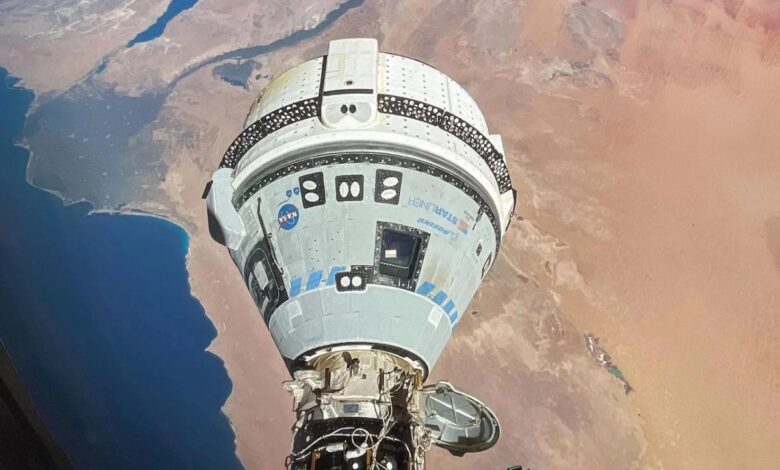NASA and Boeing deny Starliner crew is ‘stranded’: “We’re not in any rush to come home”

NASA and Boeing officials pushed back against recent reporting that the two astronauts brought to the ISS on Starliner are stranded on board. The companies said in a press conference Friday that they are using “the luxury of time” to learn as much about the capsule as possible before it returns to Earth.
The two astronauts will be there for a few more weeks while the company and NASA perform more tests from the ground — meaning yet another extension to their stay, though officials declined to provide a new target date for their return.
“I want to make it real clear that we’re not in any rush to come home,” Steve Stich, NASA’s commercial crew program manager, said during the press conference. “The station is a nice, safe place to stop and take our time to work through the vehicle and make sure we’re ready to come home.”
In the interim, engineers from Boeing and NASA will head to New Mexico’s White Sands Test Facility to conduct a series of remote tests on the spacecraft’s thrusters. There are 28 thrusters on Starliner, responsible for making minute changes to the spacecraft’s movements in orbit, and they’re critical for safe docking and undocking from the ISS. That docking process was halted on approach when five malfunctioned on orbit, but engineers were able to bring four of those thrusters back online, which allowed docking to proceed.
Starliner also experienced several small helium leaks since launch on June 5, but NASA and Boeing officials said that these leaks are not a concern for return. Starliner is not leaking any helium while its docked to the ISS because they are located in a part of the spacecraft that is closed off. The spacecraft also has ten times the amount of helium it needs to get through undocking and the deorbit burn, Stich said.
The thruster testing is expected to take a couple of weeks, during which time NASA spaceflight veterans Butch Wilmore and Suni Williams will remain on the station. As of today, they’ve been onboard the ISS for nearly three weeks; the mission was expected to last just a week or so. The landing plan will be determined once the thruster testing is complete, Stich said.
“We’re just looking at the timeline to execute that test, and then review the test [data],” he added. “That’s what’s really the long pole, I would say, in determining a landing date.”
Starliner is designed for up to 210-day missions, but this first crewed demonstration mission was limited to 45 days due to limits of the batteries on the capsule’s crew module. But those batteries are being recharged by the space station, so Stich said the agency is considering extending the maximum length of the stay.
“The risk for the next 45 days is essentially the same as the first 45 days,” he said.
While Stich and Mark Nappi, Boeing’s program manager of the commercial crew program, said that a root cause of the problems is still not understood, that Starliner is safe to bring astronauts home in case of an emergency. The ISS nearly had one earlier this week, when a defunct Russian Earth observation satellite broke up on orbit. (The cause of the break up is not clear.) NASA officials instructed the crew to shelter in their respective spacecraft, a standard precaution. While no debris came close to the ISS, in the event of a collision the astronauts would have used those spacecraft to disembark from the station and return to Earth.
Source link



